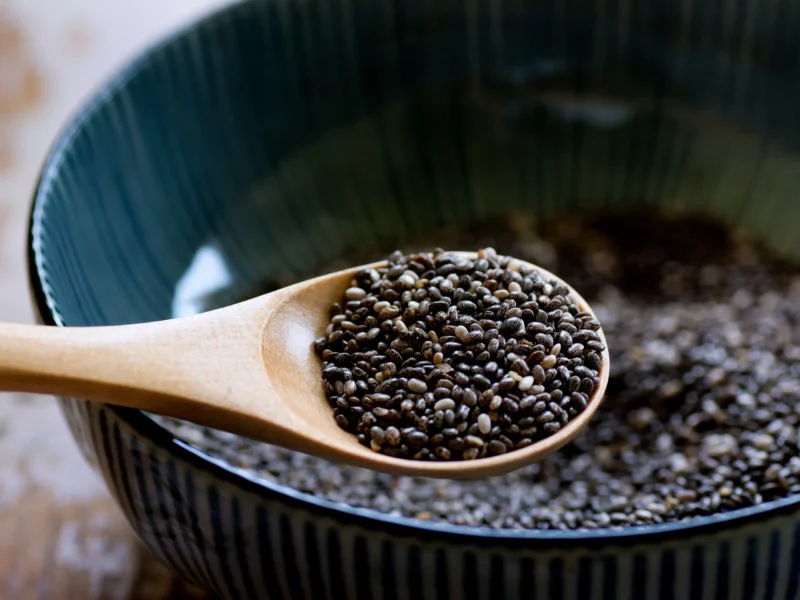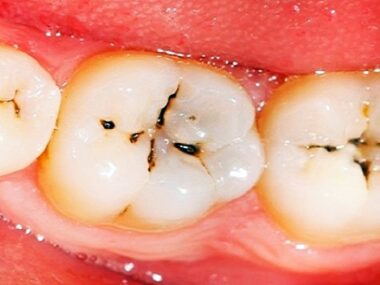Introduction:
In recent years, chia seeds have gained popularity as a nutritional powerhouse and super-food, revered for their impressive nutrient profile and potential health benefits. Originating from the Salvia hispanica plant, native to Central and South America, chia seeds have been consumed for centuries by indigenous cultures for their medicinal and culinary properties. Today, chia seeds are celebrated for their high content of omega-3 fatty acids, fiber, protein, vitamins, minerals, and antioxidants. In this comprehensive guide, we’ll delve into the nutritional benefits of chia seeds, explore their potential health effects, and provide practical tips for incorporating them into your diet.
Nutritional Profile of Chia Seeds:
Chia seeds are packed with essential nutrients that contribute to overall health and well-being. Here’s a breakdown of the nutritional composition of chia seeds per one ounce (28 grams):

Calories: 137 kcal
Protein: 4.4 grams
Fat: 8.6 grams (including omega-3 and omega-6 fatty acids)
Carbohydrates: 12.3 grams (including fiber)
Fiber: 10.6 grams
Calcium: 177 milligrams
Phosphorus: 265 milligrams
Magnesium: 95 milligrams
Potassium: 44 milligrams
Zinc: 1 milligram
Vitamin B1 (Thiamine): 0.6 milligrams
Vitamin B3 (Niacin): 2.5 milligrams
Vitamin B6: 0.1 milligrams
Folate: 5 micrograms
Omega-3 Fatty Acids:
Chia seeds are one of the richest plant-based sources of alpha-linolenic acid (ALA), a type of omega-3 fatty acid that is essential for heart health, brain function, and inflammation regulation. Consuming omega-3 fatty acids may help reduce the risk of cardiovascular disease, lower blood pressure, improve cholesterol levels, and support cognitive function. Incorporating chia seeds into your diet can help boost your intake of these beneficial fats, especially for individuals following a vegetarian or vegan diet.
Fiber Content:
Fiber is essential for digestive health, promoting regularity, and preventing constipation. Chia seeds are exceptionally rich in dietary fiber, with a one-ounce serving providing over 10 grams of fiber, or approximately 40% of the recommended daily intake. Both soluble and insoluble fiber found in chia seeds can help regulate blood sugar levels, promote satiety, and support weight management. Additionally, soluble fiber forms a gel-like substance when mixed with liquids, which can slow down digestion and promote feelings of fullness.
Protein Content:
Despite their small size, chia seeds are surprisingly high in protein, making them an excellent plant-based protein source for vegetarians, vegans, and individuals looking to increase their protein intake. Protein is essential for muscle repair and growth, immune function, hormone production, and satiety. Incorporating chia seeds into meals and snacks can help boost protein content and support overall health and wellbeing.
Antioxidant Activity:
Chia seeds are rich in antioxidants, compounds that help neutralize harmful free radicals and protect against oxidative damage to cells and tissues. Antioxidants play a crucial role in reducing inflammation, supporting immune function, and preventing chronic diseases such as cancer, heart disease, and diabetes. The antioxidant activity of chia seeds is attributed to their high content of polyphenols, flavonoids, and other bioactive compounds.
Vitamins and Minerals:
Chia seeds are a good source of several vitamins and minerals essential for overall health and vitality. They contain significant amounts of calcium, phosphorus, magnesium, potassium, zinc, and B vitamins such as thiamine, niacin, and folate. These micronutrients play diverse roles in the body, including bone health, energy metabolism, nerve function, and immune support. Incorporating chia seeds into your diet can help ensure you’re meeting your daily nutrient needs and promoting optimal health.
Health Benefits of Chia Seeds:
The consumption of chia seeds has been associated with various health benefits, supported by scientific research and anecdotal evidence. Some potential health benefits of chia seeds include:
Heart Health: The omega-3 fatty acids found in chia seeds may help reduce the risk of heart disease by lowering cholesterol levels, reducing blood pressure, and preventing blood clot formation.
Blood Sugar Control: The soluble fiber content of chia seeds can help stabilize blood sugar levels and improve insulin sensitivity, making them a valuable addition to the diet for individuals with diabetes or insulin resistance.
Weight Management: The combination of protein, fiber, and healthy fats in chia seeds can promote feelings of fullness and satiety, potentially reducing calorie intake and supporting weight loss or weight maintenance efforts.
Digestive Health: The high fiber content of chia seeds supports digestive health by promoting regular bowel movements, preventing constipation, and supporting a healthy gut microbiome.
Bone Health: Chia seeds are rich in calcium, phosphorus, magnesium, and other minerals essential for bone health and density, making them a valuable addition to the diet for promoting strong and healthy bones, especially for individuals at risk of osteoporosis.










